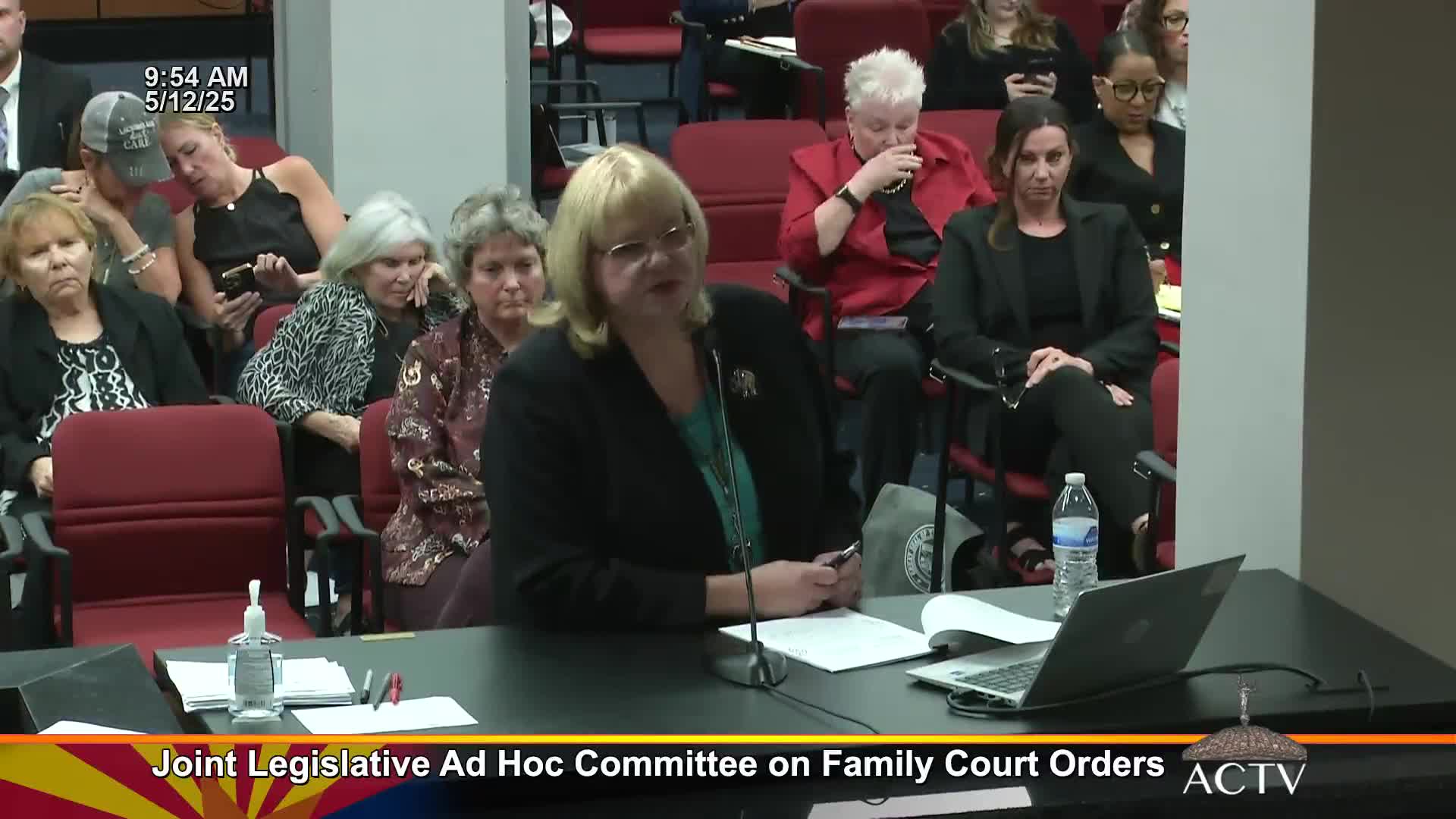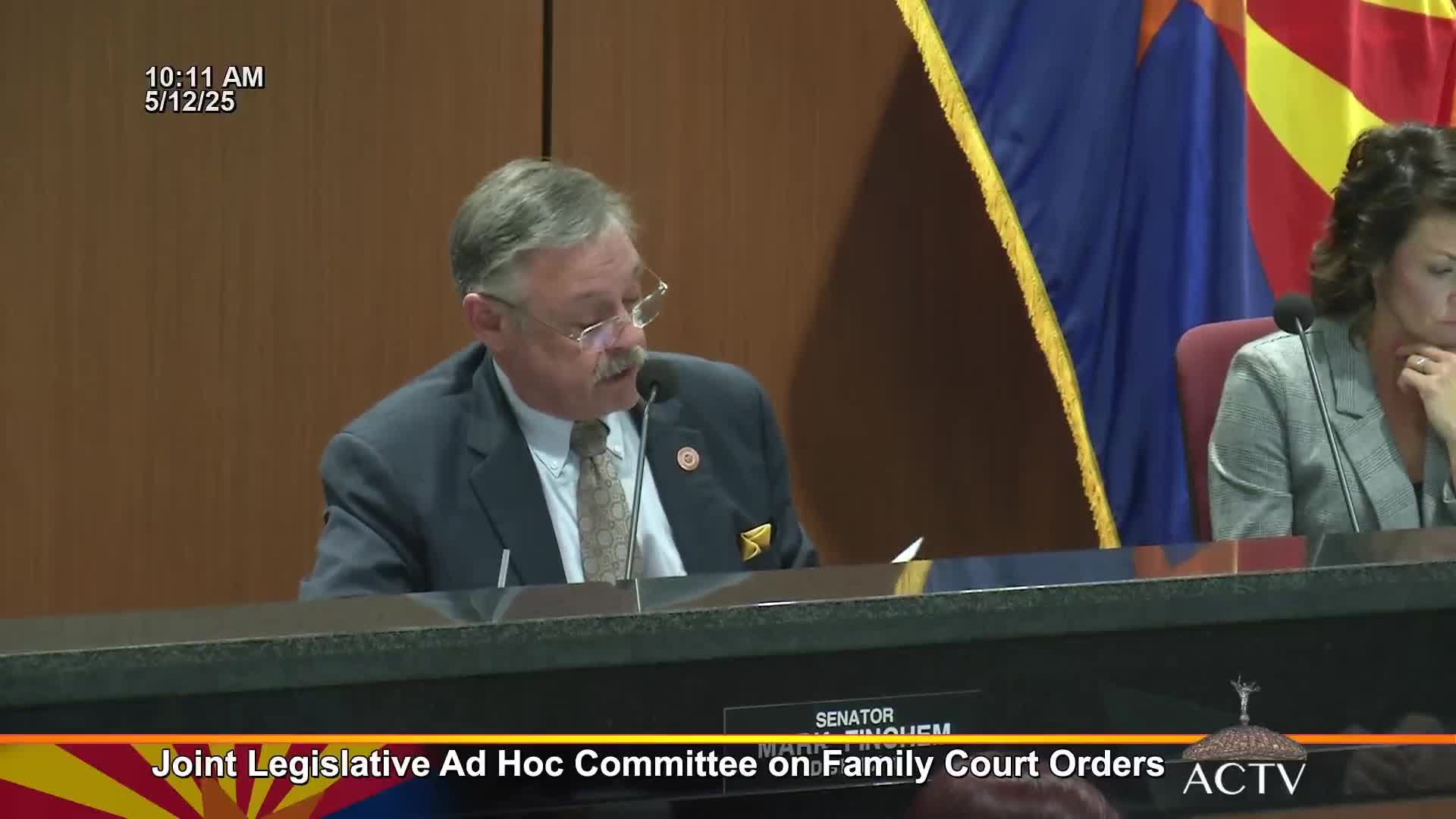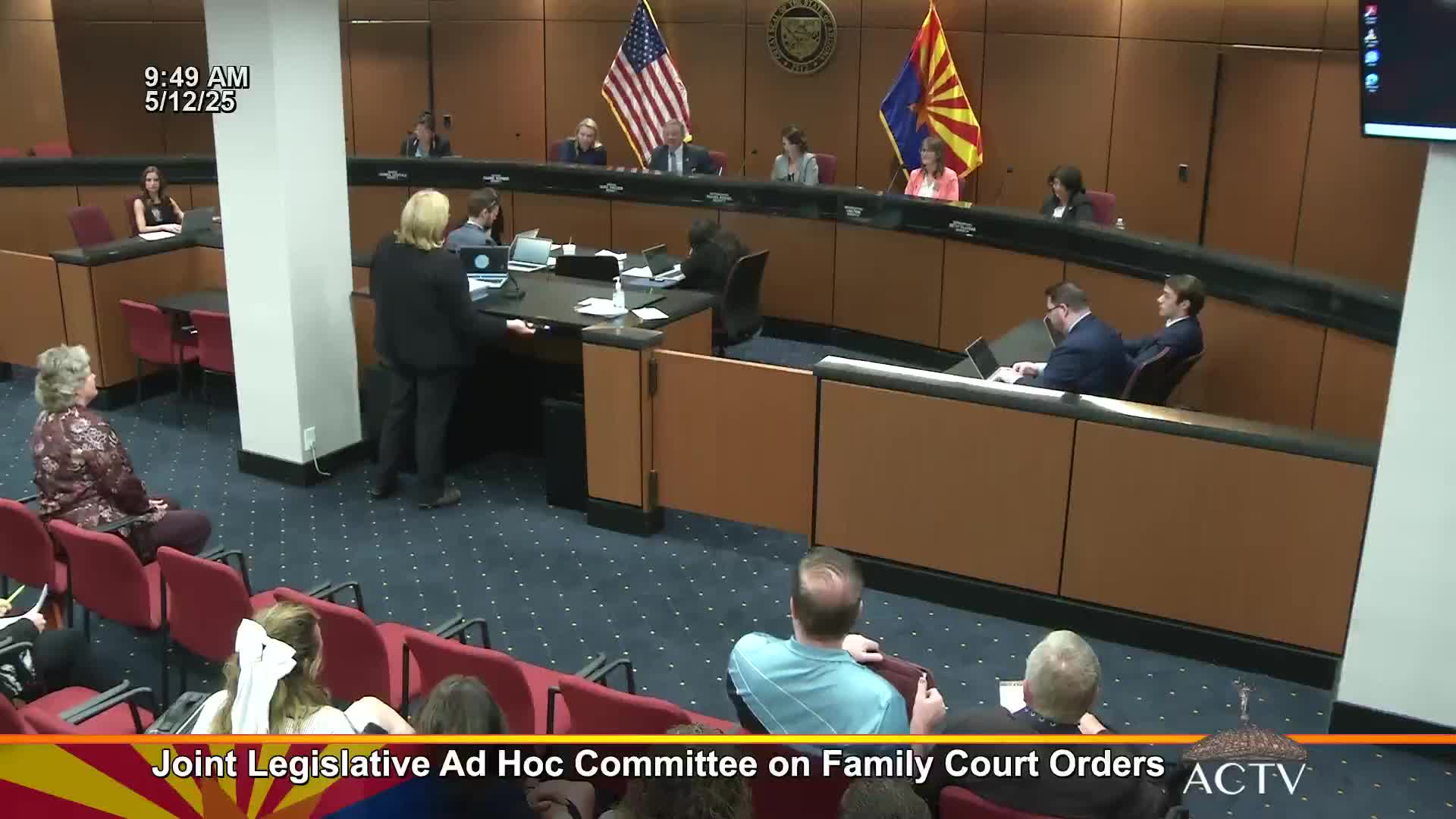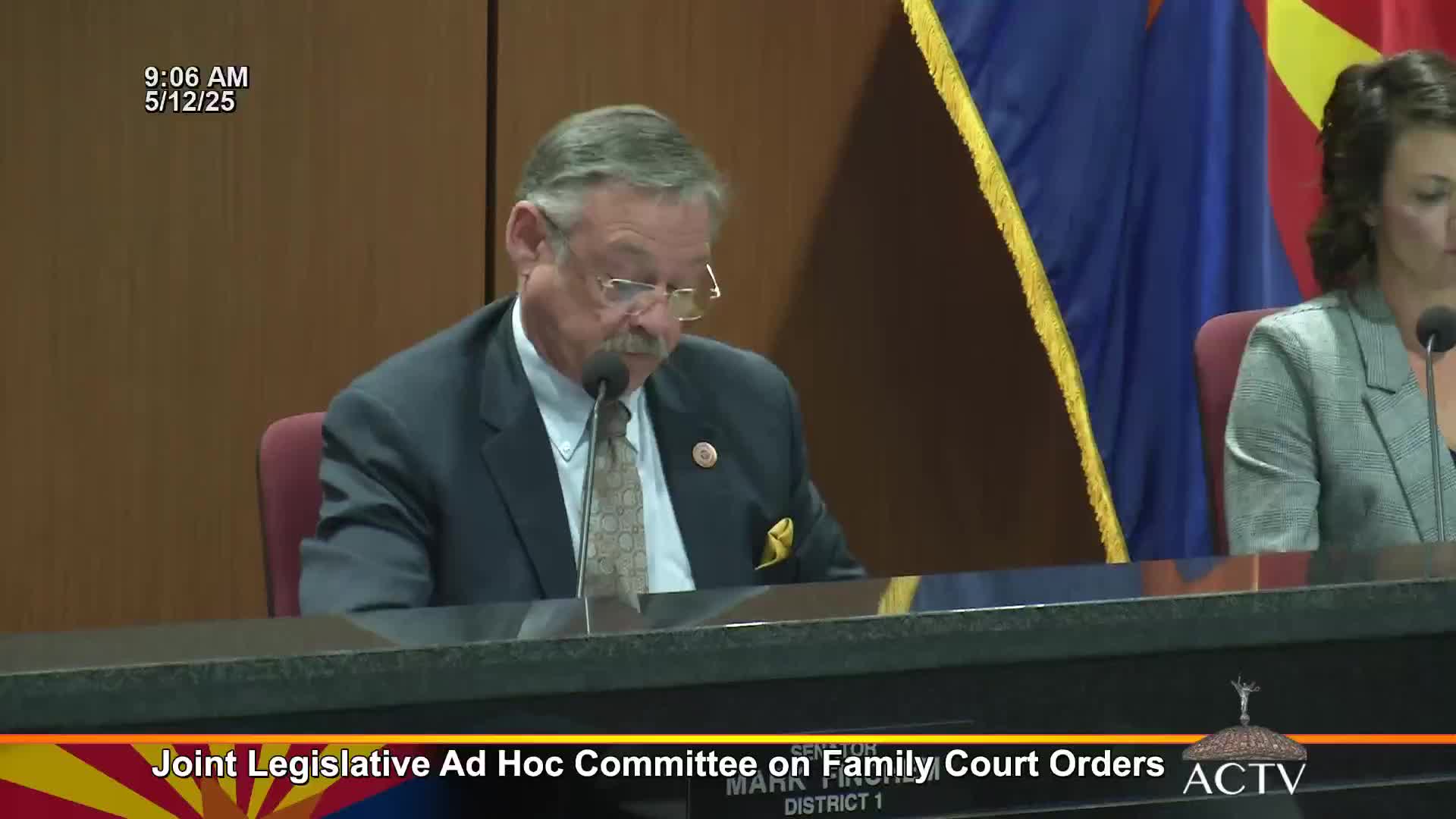Article not found
This article is no longer available. But don't worry—we've gathered other articles that discuss the same topic.

Teen and child witnesses tell committee their voices were ignored in family court

Parents and advocates tell lawmakers therapeutic interventionists, supervised services can cost thousands and escape accountability

Arizona Commission on Judicial Conduct urges limits on its role; explains complaint volume and confidentiality rules

